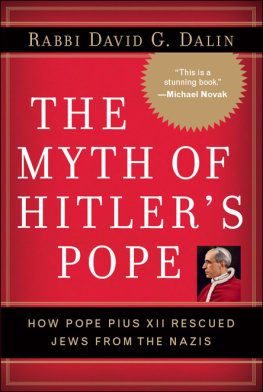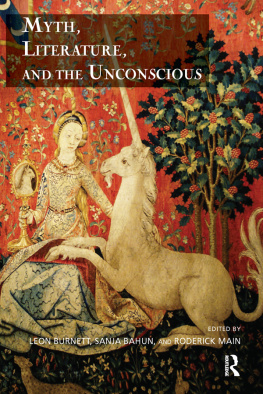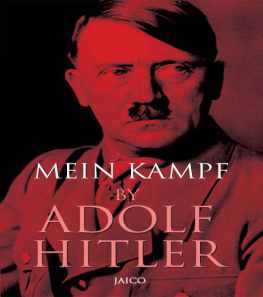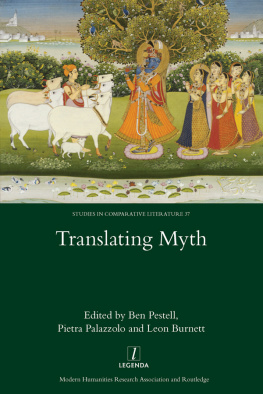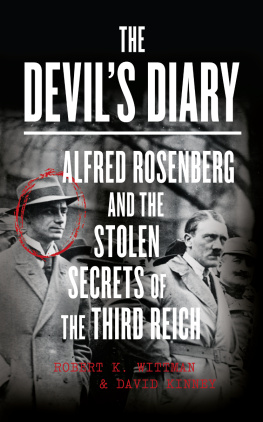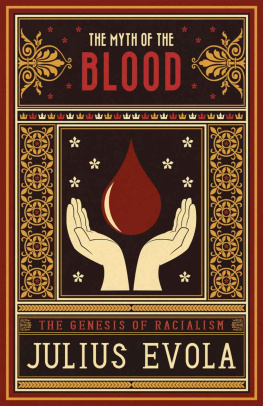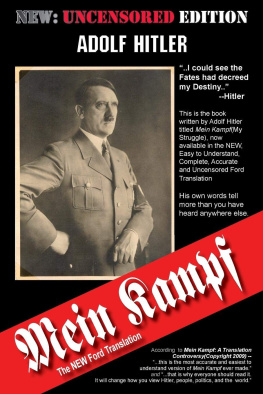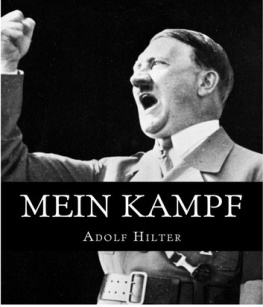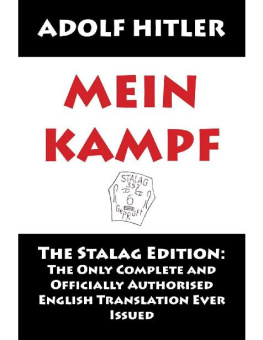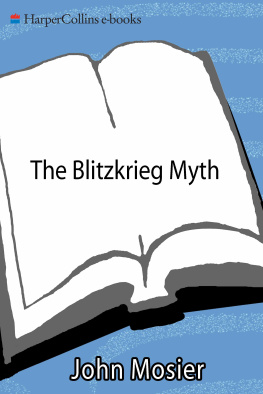
The Myth of the 20th
Century
The Myth of the Twentieth Century
Mythus des 20. Jahrhunderts
An Evaluation of the Spiritual-Intellectual
Confrontations of Our Age
by Alfred Rosenberg
This address is only for those who have already found its message in their own
lives, or at least long for it in their hearts.
Meister Eckehart.
Copyright 2015 by White Wolf
All Rights Reserved
All rights reserved. No part of this book shell be reproduces or transmitted in any form or by any means, electronic or mechanical, including photocopying, recording, or by any information or retrieval system, without written permission form the Publisher.
The scanning, uploading and distribution of this book via internet or via any other means without the permission of the publisher is illegal and punishable by law.
Please purchase only authorized editions, and do not participate in or encourage electronic piracy of copyrighted materials. Your support to the author's rights is appreciated.
Published by White Wolf
First Edition
ISBN: 978-1503244795
In memory of the two million German heroes who fell in the world war for a German life and a German Reich of honor and freedom.
Preface
All present day struggles for power are outward effects of an inward collapse. All State systems of 1914 have already collapsed, even if in part they still formally exist. Collapsed also have social, church and ideological creeds and values. No highest principle, no supreme idea governs undisputed the life of Folks. Group struggles against group, party against party, national values against international dogmas, rigid imperialism against spreading pacifism. Finance with its golden meshes swallows States and Folk, economy becomes nomadic, life is uprooted.
The Great War, as the beginning of a world revolution in all domains, has revealed the tragic fact that, although millions sacrificed their lives, this sacrifice was to the advantage of forces other than those for which the armies were ready to die. The dead of the war were victims of a catastrophic epoch that had lost all its values, but at the same timeand this is something which begins to be grasped in Germany today, even if so far by fewthe martyrs of a new dawn, of a new faith. The blood which died, begins to live. In its mystical sign the cells of the German Folkish soul renew themselves. Past and present suddenly appear in a new light, and for the future there results a new mission. History and the task of the future no longer signify the struggle of class against class or the conflict between one church dogma and another, but the settlement between blood and blood, race and race, Folk and Folk. And that means: the struggle of spiritual values against each other.
However, the values of the racial soul, which stand as driving forces behind this new image of the world, have not yet become a living consciousness. Soul means race seen from within. And, conversely, race is the external side of a soul. To awaken the racial soul to life means to recognize its highest value, and, under its dominance, to allot to other values their organic position in the State, in art, and in religion. That is the task of our century; to create a new human type out of a new view of life. And for this, courage is needed; courage of each single individual, courage of the entire generation growing up, indeed of many following generations. For chaos has never been mastered by those without courage, and a world has never been built by cowards. Whoever wishes to go forward, must therefore also burn bridges behind him. Whoever sets out on a great journey, must leave old household goods behind. Whoever strives for what is highest, must turn his back on what is lesser. And to all doubts and questions the new man of the coming great German Reich knows only one answer: I alone will triumph!
Despite the fact that so many today agree with these words, nevertheless no community can as yet be established on the basis of the ideas and conclusions laid down in this work. These are personal avowals throughout, not points in the program of the political movement to which I belong. This has its own great special task, and as an organization must keep itself remote from disputes of a religious, churchish political kind, as well as from the obligation to a definite philosophy of art or a fixed style of architecture. Thus it cannot also be made responsible for what is put forward here. Philosophical, religious, artistic convictions are only to be based on the prerequisite of personal freedom of conscience, and that is the case here. The work, however, is not directed at persons who live and work happily and firmly rooted within their own faith communities, but certainly at all those who, inwardly released from the latter, have still not fought their way forward to new ideological links. The fact that these already number millions lays obligations on every fellow fighter to help himself and other seekers through deeper reflection.
This work, the basic idea of which goes back to 1917, was already completed in fundamentals in 1925, but new everyday duties again and again held up its final appearance. Works of colleagues or opponents then demanded renewed attention to questions which had hitherto been put aside. Not for a moment do I believe that here a solution to the great themes placed before us by destiny has been achieved. But I certainly hope to have clearly posed questions and to have coherently answered them as the foundation for the bringing about a day of which we all dream.
Alfred Rosenberg,
Munich , February 1930
Concerning the Third Edition
The publication of this work immediately called forth the most violent arguments. Owing to my deliberate questions and sharpened outlines, attacks were to be expected. But if I am to be completely honest, then I must say that I am astounded (but also overjoyed) at the concentrated hate I have encountered along with the unscrupulous distortion of what I have written, by the manner in which these attacks appeared as if by command. In particular, the wild unrestrained abuse by Roman churchish circles has shown how deeply justified the assessment of the Roman Syrian dogma in fact is in the present work. According to old established methods, certain conclusions and assertions were, of course, taken out of context from this extensive book, and the "blasphemy," the "atheism," the "Wotanism" of the author were held out before the credible reader in the German Roman press and in pamphlets. The falsifiers omitted that I even went so far as to postulate Wagners assertion that a work of art is the living representation of religion and the starting point for the whole of Germanic art and its foundation. The great respect which is shown the founder of Christianity in the work was overlooked. It was deliberately concealed that my religious observations have the clear intention of viewing his great personality without the eternal distortions by various churches. It was omitted that I rendered Wotanism as a dead religious form (but naturally have respect for the Germanic character which gave birth to Wotan as well as Faust) and, in an unscrupulous manner, the fantasy was concocted that I wished to reintroduce the "pagan cult of Wotan." In short, there was nothing which was not distorted and falsified; and what appeared correctly expressed in a literal sense received a completely different coloring by being taken out of context. The Roman churchish press omitted entirely all historicalbecause unassailablefactual affirmations; all thought processes which led to a definite outlook were thoroughly distorted, and the bases of the requirements presented were deliberately overlooked. The prelates and cardinals mobilized the "faithful masses," and Rome, along with atheistic Marxism, that is, with the political support of the sub-humans, conducted a war of annihilation against Germany, to the total sacrifice of the German catholics, and yet had the effrontery to suddenly chatter about a "Kulturkampf." The context of this work, which according to form and content certainly stands above those of the everyday level, were not made into an objective, and therefore, to be welcomed, critique, but were utilized for the most desolate everyday conflicts. Not against myself alone that would have left me indifferentbut also against the National Socialist Movement to which I have belonged since its inception. Despite the fact that, in the introduction and in the work itself, I expressly declared that a political movement which includes diverse religious denominations could not solve questions of a religious or artistic philosophical nature; that consequently my world outlook as a creed was a personal onein spite of all thisthe obscurantists did everything in their power to divert attention from their political crimes against the German Folk, and once again to lament about "religion endangered;" although true religion is endangered by nothing so much as by the systematic cultivation of Marxism by the Centre Party under direction of the Roman prelates. The National Socialist Movement is not concerned with exerting religious dogmatism, neither for nor against a particular denomination, but the fact that a man in the forefront of political life must claim the right to represent a religious conviction which runs contrary to that of Rome, reveals to what degree spiritual gagging has already been successful.
Next page

